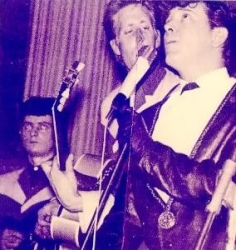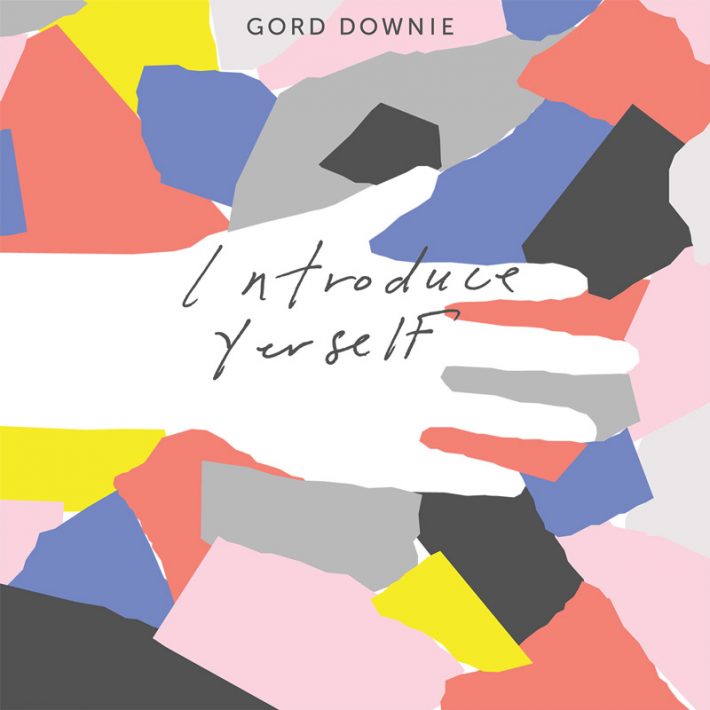RUSSIAN RAP AS A DETONATOR OF THE REVOLUTION
 A lot has already been written about the reasons that prompted young people to come out to protest against corruption, but one of the main aspects – the impact on the minds of modern and very evil Russian rap – has remained almost unnoticed. About how rapper Oksimiron (Oxxxymiron) and others had a hand in “rocking the boat” – journalist Alexey Papperov:
A lot has already been written about the reasons that prompted young people to come out to protest against corruption, but one of the main aspects – the impact on the minds of modern and very evil Russian rap – has remained almost unnoticed. About how rapper Oksimiron (Oxxxymiron) and others had a hand in “rocking the boat” – journalist Alexey Papperov:
“Everyone is asking why teenagers went to a rally against corruption. It is interesting to remember that the most popular music album “Vkontakte” in 2015–2016 was “Gorgorod” of Oksimiron – a powerful political statement with a conceptual history about the soldier who sold out, who was involved in a power struggle against the depraved and all-powerful Mayor. At the end of 2015, Oksimiron was invited to the Ivan Urgant show, where he performed his main hit “Where we are not” and made the sign of the cross over the camera on debauchery lines on the part of the priest. Then he held sold-out concerts in the capitals. Prior to this, Myron became famous as the main battle-rapper of the country, with all his Versus editions everyone who has internet and social network accounts watched. Then he assembled the Sibur Arena. In 2017, he is going to perform in the Ice Palace and the “Olympic”, tickets are already on sale.
Of course, there were famous political tracks before Miron in Russian rap. For example, “the Sun is not visible” Basta or the recent song “Caste” “They.” Decl released “Traffic jams, construction, dirt” in 2015, thereby creating the loudest and most positive infoprovod for the last ten years of his career – people came to the comments on YouTube, praised the song and were surprised that he was still recording music (after that there was a humiliating trial for Decl himself with Basta because of the “sucker” on Twitter and an indistinct reggae album). In the same year, Noize MC, together with the Atlantida Project group, presented the energetic track “Jordan”, a poetic story about a “naked king” who unleashed a senseless war and explains all the problems of his people with the intrigues of his enemies. The video for the song was shot in the format of an apocalyptic parable in the spirit of “The Road” by Cormac McCarthy, woven into the text of the greeting in Arabic and Hebrew did not leave doubts about the pacifist orientation of the lyrics.
But all these visits to the territory of politics are losing out to the “Gorgorod” – so successful, integral, good evil, impeccably getting into the situation and the target audience of work has not yet been. Usually, near-political tracks in Russian rap are reduced to a statement of the situation, the horny allusions or decadent criticism, calls not to lose human dignity and continue to do their work. Against such a background, Oksimiron looks like a real revolutionary. He, by his own example, even in the format of a concept album, calls the listener to action. He puts living convincing characters inside a multi-dimensional through story with a skillfully built drama. Here you can talk about everything at once – a powerful protest charge, lively energy, a successful experiment with a storytelling, an obvious creative success. All the rest did not manage to awaken the youth – they turned out to be too passive, predictable, difficult to build, not serious, and such a task never happened. At Oksimiron it turned out.
Rappers in general to the policy is not very. Scripton at the bottom of the brothel. ATL draws pictures of space battles and hallucinogenic apocalypse. Pharaoh and his Young Russia formation are engaged in psychedelic emo rap, they have a completely different agenda. “Caspian cargo” exploit near-criminal romance. Gufu and the rest of the topic is not very interesting. At best, it sounds somewhere in the background or crawls through a creaking scenery into some kind of “social” track, and this creak is a long-known, familiar one, and it sounds, as a rule, the same for different artists. The output is black and white clips about padikah, cops, poverty and injustice – the canonical genre is already out of fashion, because it sounds like a broken record.
About fashion now artist Husky needs to be said separately. He published his first and possibly most biting political text back in October 2011 (two months before the first mass protests against election fraud). The name of the track coincided with the date of birth of Vladimir Putin. Quite masterfully twisting the lines, Husky talked about the suzerain’s festive feast in the midst of a country drowning in chaos, misery and lawlessness. In 2013, Husky released a depressive and frankly political album with the saying name “Sbch zhzn”, where sharp social criticism was side by side with the revelations of the man who had come to the square. It was followed by a more abstract and reflective long-play “Self-portraits”, which was released in 2015 with a cover in the form of a urine pattern on the snow. Already in 2016 and later songs were released that made Huskies famous, a kind of sketches of the catastrophe of internal and external doom – “Black and Black”, “Bullet-fool”, “Panel”. Husky confidently plays on the archetypes of Russian culture, manipulates them in the context of a viscous and chthonic atmosphere, which is fertile soil.




